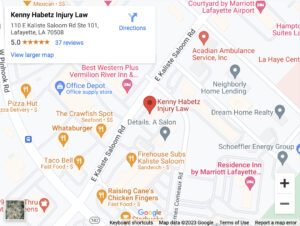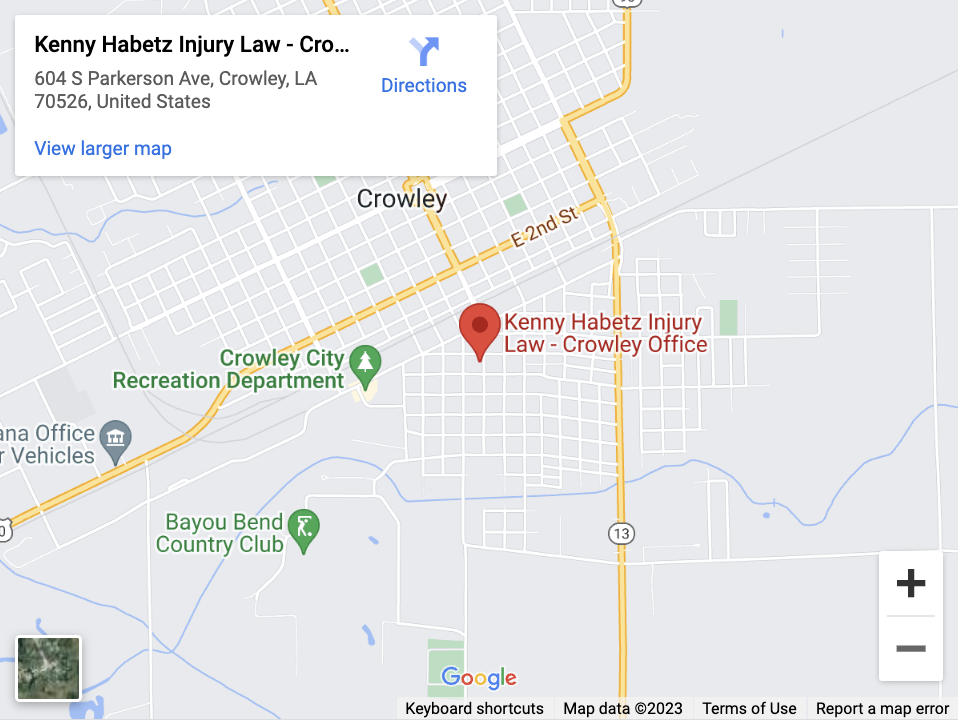Kenny Habetz Injury Law | October 4, 2024 | Personal Injury

The class action lawsuit is a brilliant legal innovation designed to increase the efficiency of the judicial system by allowing plaintiffs with similar legal claims to combine their cases into a single collective action. It reduces the burden on courts and provides a practical means for individuals with smaller claims to seek justice. Do not confuse it with multidistrict litigation (MDL), which is another type of legal innovation designed to increase efficiency.
What Types of Claims Most Frequently Use Class Action Lawsuits?
Class action lawsuits arise in a variety of different legal practice areas. The following types of claims most frequently become class action lawsuits within the field of personal injury:
- Product liability claims
- Toxic exposure (mass torts)
- Oil spills and other environmental disasters
- Large-scale medical malpractice
Typically, these cases will have similar facts and laws in common.
Procedure
The procedure for a class action is to file a lawsuit, have the court certify the class, notify the plaintiffs and give them a chance to opt-out, and then proceed with ordinary litigation procedures such as pretrial discovery. The last stage is trial or settlement.
File a Lawsuit
You initiate a class action lawsuit by filing a lawsuit. The complaint must describe the wrongdoing and the damages, identify the affected class, and list the legal remedies you seek. By identifying the class, you notify the court that you are seeking a class action lawsuit.
Certify the Class
The court must certify the class. To gain certification, your proposed class must meet the following qualifications:
- A minimum number of members: This might mean only a couple of dozen plaintiffs, or a large class action lawsuit might name thousands of plaintiffs.
- Shared legal and factual issues.
- Typicality: The claims you are asserting are representative of the claims of the class as a whole.
- Competent legal representation.
If the court is satisfied that you meet all of the foregoing qualifications, it will certify the class. The class might be something like “Anyone who is wearing or has worn an XYZ hernia mesh between 2010 and 2024”, for example. The process might take weeks or months.
Notification and Opt-Out
The court will notify each member of the class about the legal action. The typical notification methods are direct mail and publication, but some courts now use email. The notice must tell the plaintiffs about the lawsuit and inform them of their ability to opt-out if they don’t want to participate.
If a plaintiff opts out, they retain the right to file their own lawsuit. Plaintiffs opt out by notifying the court or your lawyer. This process can take months, but it might take a year or more if the class size is large enough.
Pretrial Discovery
Pretrial discovery is a powerful evidence-gathering process that only begins after a plaintiff initiates a lawsuit. In discovery, each side demands access to evidence that is in the other party’s possession. Four main legal tools apply to compel the discovery process:
- Depositions
- Interrogatories
- Demands for the production of documents and physical evidence
- Requests for admissions
Failure to comply with the other side’s discovery request can lead to court sanctions, which is what makes discovery so powerful. Discovery frequently takes a year or more to complete, assuming the parties don’t settle the case early.
Negotiations
Negotiations can take place at any time. Defendants settle most class action claims before they go to trial, and many settle even before the class is certified. The court must approve any settlement to ensure it is fair to all class members. Class members have the right to object and ask the court to rule on their objections.
Trial
A trial is a last resort that almost everyone wants to avoid. If your case goes all the way to trial, your case might take years to resolve.
You Need a Lawyer to Handle a Class Action Lawsuit
In summary, there are many factors that affect how long your class action lawsuit may take. In Louisiana, like the rest of the country, you legally must have a lawyer for a class action lawsuit. You’ll need a lawyer, and you’ll need to make sure you hire an effective one. If you have questions about class actions and need legal help, contact Kenny Habetz Injury Law today to schedule a free consultation.
Contact the Lafayette Personal Injury Law Firm Of Kenny Habetz Injury Law for Help Today
If you’ve been injured in Louisiana, please call Kenny Habetz Injury Law for a free case evaluation with a Lafayette personal injury lawyer or contact us online.
Kenny Habetz Injury Law – Lafayette
110 E Kaliste Saloom Rd Ste 101 Lafayette, LA 70508
(337) 399-9000
Kenny Habetz Injury Law – Crowley
604 S Parkerson Ave. Crowley, LA 70526
(337) 329-8883


